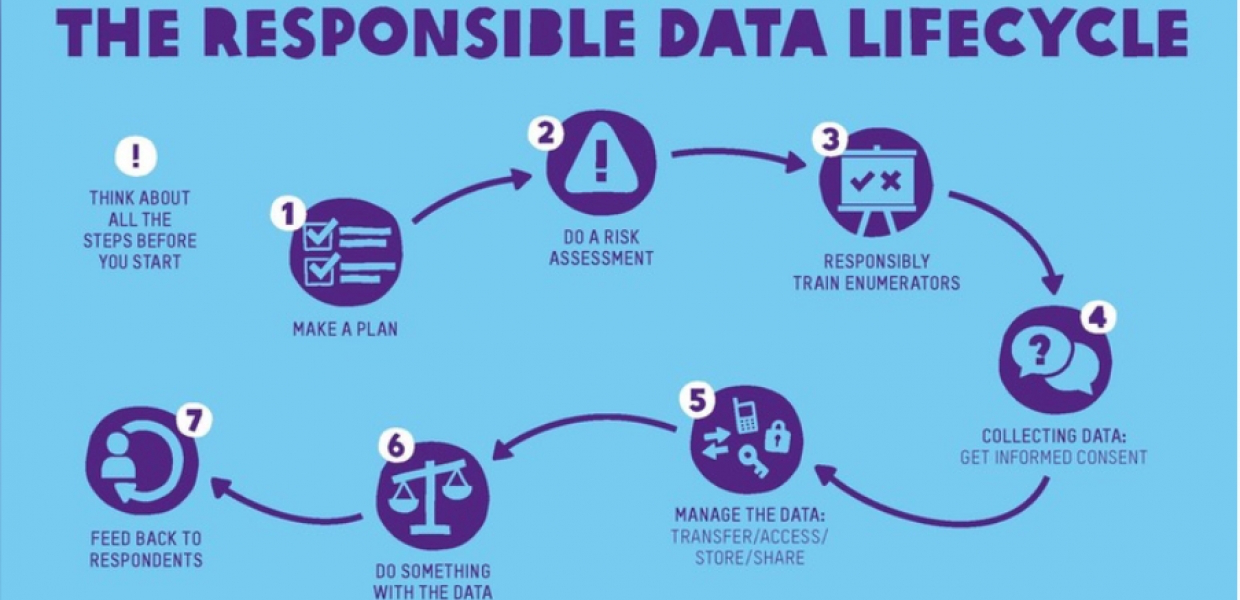The Oxfam Responsible Data policy in practice, two years on

Researcher on this project examing how Oxfam’s Responsible Data policy is being translated into practice.
In 2015, Oxfam was the first international NGO to develop a Responsible Data policy. Two years on, we looked into how Oxfam’s Responsible Data policy is being translated into practice.
What does it mean to implement a Responsible Data policy?
Since adopting the Responsible Data policy, Oxfam has been working towards its implementation by developing practical resources and piloting the policy in six countries, each chosen intentionally as they have different issue focus areas and different contexts.
Meanwhile, the Responsible Data community has continued to grow, and responsible data policies have taken root in organisations like USAID, the Catholic Relief Services and Africa’s Voices.
We helped Oxfam understand how the concept of responsible data is perceived within the confederation, and how the Responsible Data policy is being implemented in practice – is it changing project-level implementation on a practical level, or raising awareness around these issues?
We interviewed Oxfam staff to learn about how they perceive the concept of responsible data and the implementation of the policy.
Looking into the available tools and applications
I reviewed responsible data resources created by Oxfam, many of which have been put online and made available to others to use.
Identifying challenges
We identified the challenges that Oxfam is facing in implementing the Responsible Data policy, and listed a number of recommendations.> ‘Thanks to the Responsible Data Policy, our data collection framework was very well structured and systematic – now we have become much more alert, on several fronts: for the in-depth process, how this is being handled, the access to the data, the confidentiality agreement.’– An interviewee and Oxfam staff member
We compiled all our findings in a report, which is available freely online. Although the recommendations are specific to Oxfam’s context, we hope that other organisations will also be able to take away ideas, and find inspiration in Oxfam’s commitment to responsible data.</span>